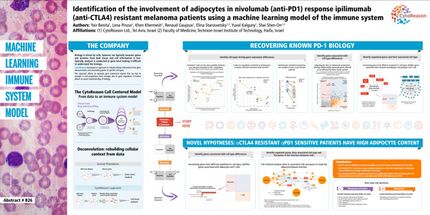MRC Technology Sells Its Melanocortin Receptors Programme to Pfizer Inc.
Small molecules developed in collaboration with Queen Mary University of London
Advertisement
MRC Technology, a technology transfer organisation, announced that it has sold to Pfizer Inc. its melanocortin receptors (MCRs) programme, which includes a set of small molecules. Targets for these small molecules came to the attention of MRC Technology from Mauro Perretti, Professor of Immunopharmacology at Queen Mary University of London (QMUL), and MRC Technology ran a screening programme in collaboration with QMUL. MCRs have a wide and varied distribution throughout the body, being found in the central nervous system, periphery and immune cells.
The undisclosed financial consideration received by MRC Technology from this transaction with Pfizer will be shared with QMUL’s William Harvey Research Institute, of which Professor Perretti is Co-Director. Under MRC Technology’s not-for-profit collaborative model, revenue retained from this transaction will be reinvested to support other collaborative programmes within its drug discovery labs.
“We believe MCRs have significant therapeutic potential and we are delighted to have completed this transaction with Pfizer,” commented Professor Justin Bryans, Director of Drug Discovery at MRC Technology. “This transaction and similar ones will enable MRC Technology to reinvest in its drug discovery programmes focussed on areas of unmet medical need.”
“We are pleased to have acquired novel early-stage compounds discovered by MRC Technology,” said Tim Rolph, Vice President and Chief Scientific Officer of Cardiovascular, Metabolic & Endocrine Disease Research at Pfizer Inc. “Through research and development efforts, we hope to identify a potential new medicine to treat those who are genetically susceptible to certain diseases and associated morbidities.”
“As an academic pharmacologist, it is truly rewarding to see more than a decade’s work lead to a fascinating collaboration with MRC Technology and to this agreement with Pfizer. This is truly within the translational spirit of the research conducted at QMUL,” added Professor Perretti.


























































